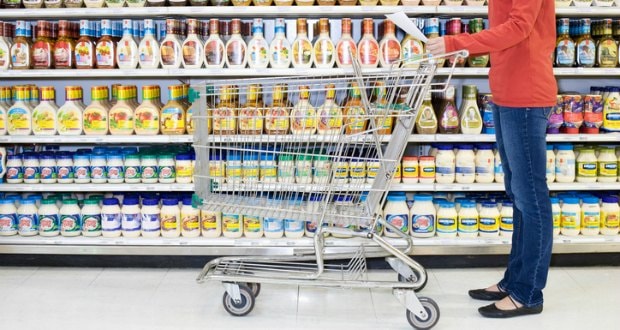A walk down the supermarket aisle is nothing short of a trip to Disneyland for me. I love grocery shopping, it is my secret weapon to ward off blues. Choosing ingredients, playing with flavour combinations and experimenting with new recipes and varied cuisines can keep me quite occupied. However, once in a while I wander off and find myself in the processed food aisle. This one is tricky. It is the promised wonderland that you are lured towards, tins and cans of exotic ingredients, your favourite dishes, available to you in a jar or in a ready-to-use pack. The flavours, minus the toil. Sounds too good to be true? It is.
Avoid processed foods as much as you possibly can. I do not recommend you go completely saatvik and only eat fresh (though that is ideal). But by definition, the moment something is processed, it will be start losing its original form.
Why is processed unhealthy?
The question no more is whether processed food is unhealthy. It is. The question merely is why is it so, and is that a blanket rule? Processing refers to canning, milling, dehydration, cooking or freezing any food item. This is usually done to increase the shelf life of a product. Thus, if a bowl of cooked beans will only last one day in normal circumstances, a can of beans may last up to one or two years. During processing, unhealthy fats like trans fats may be added to products (look out for the words ‘partially hydrogenated’, ‘fractionated’, or ‘hydrogenated’ in the ingredients). Also, sodium or sugar may be added in, both of which act as preservatives. All of these are unhealthy beyond a limit.(Also read: 5 Harmful Effects of Junk Food)
However, Harvard Medical School warns us that not all processed food is unhealthy. Some foods require some level of processing, just to make them edible. For example, pasteurization of milk is an important process to ensure that the milk we drink is safe for consumption. It is important to know which processed foods you should avoid. Here’s a list to get you started:
1. Bacon, salami, sausages and other processed meats
The World Health Organisation recently labelled processed meats as being carcinogenic to humans. It said that there is sufficient evidence to prove that the consumption of processed meat causes colorectal cancer. This does not necessarily imply that you can no longer have even a slice of bacon on the side, once in a while. WHO specifies that 50 grams of processed meat eaten daily, increases the risk of colorectal cancer by 18%.(Also read: Hot Dogs, Bacon & Other Processed Meats Cause Cancer, Declares WHO)
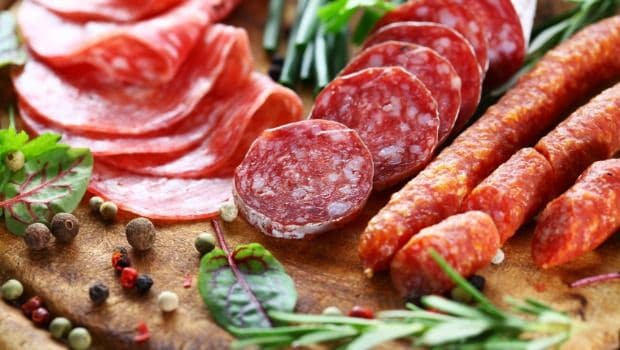
2. Bread
The big scandal in 2016 with regards to bread manufacturers in Delhi using Potassium Bromate and Potassium Iodate in their bread raised the alarm on this one. It is not magic which ensures that the supermarket bread lasts for up to a week whereas home-made bread goes stale so quickly. It is due to the preservatives and additives which are loaded in. If you cannot avoid bread altogether, try to switch to a local baker, after confirming with them what all ingredients go into their bread. As a standard rule, any bread that lasts too long, should be avoided.
(Also read: FSSAI Proposes Ban on Cancer-Causing Additive Found in Bread, Doctors React)
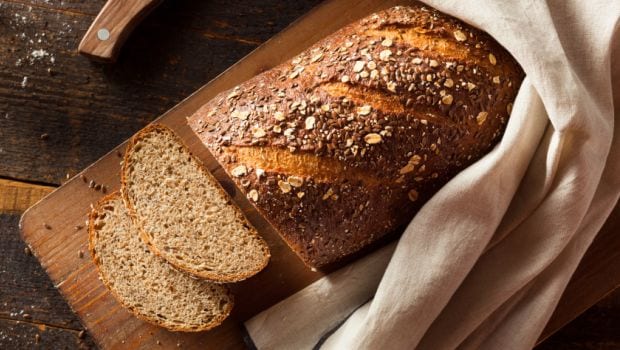
3. Ketchup
Ketchup is just tomato sauce, right? And tomatoes are healthy, so why avoid this, you ask? Ketchup is as far from real tomatoes as I am from becoming the next Queen of England. It contains copious amounts of hidden sugar, which makes it addictive besides being unhealthy. This is the first thing you should get rid of from your pantry. Just make your own chutneys which last a few days and enjoy them as dips or spreads instead.
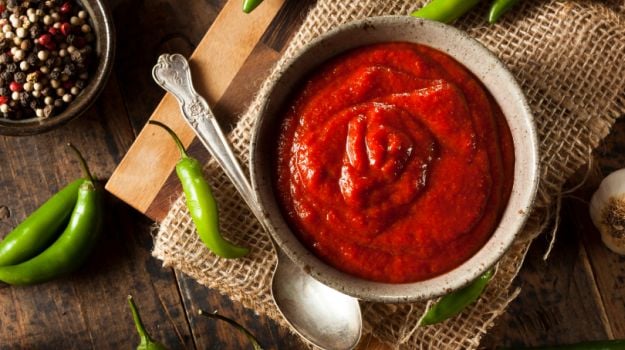
4. Pasta sauce and other pre-made sauces
I make a mean Marinara sauce. But let me confess, it takes me the better part of my day to stew it on low heat and get it perfect. The other option is to just pick a jar of marinara sauce or any other, from the nearest grocery store. But that is an option that you should not choose. As with most ingredients listed here, these sauces are full of emulsifiers, preservatives and many other undesirable ingredients. Thus, what you are feeding your family may be completely devoid of any nutrition, despite your best intentions. (Also read: How to Make Pasta Sauce at Home)
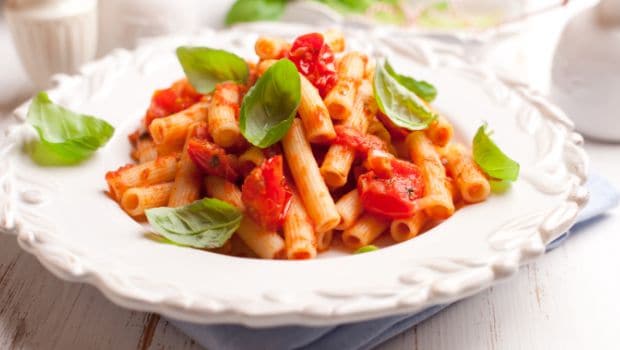
5. Cereal
Cereal is healthy breakfast, right? Depends on what cereal you’re eating. The level of processing of the cereal and the ingredients added in, could take this healthy breakfast to the other end of the spectrum. Hidden sugar is the most common culprit according to a Global Consumer Reports Study conducted across 32 nations. Also, the grains used in the cereal are highly refined, stripped of their nutrition, and refortified again. The ‘extrusion’ process used to make cereal alters the structure of the amino acids of the grains, often making them toxic.
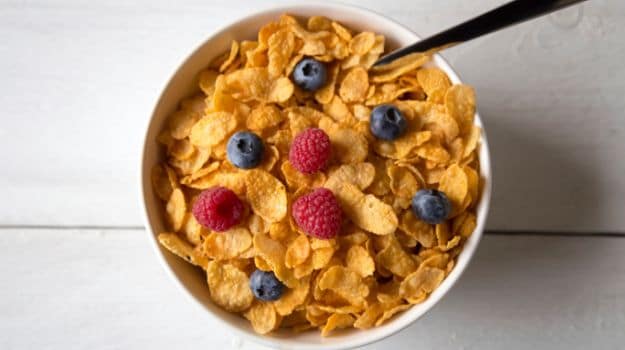
6. Colas and all similar carbonated drinks
There are so many reasons you should avoid carbonated drinks that it would perhaps be fodder for an entire article. They rot your teeth, contain unimaginable amounts of sugar, have absolutely no nutritive value and dehydrate the body over a long period of time due to high sodium, sugar and caffeine levels. If you thought that the packaged juices are any better, you are far from the truth. They usually are just water and sugar mixed with fruit concentrate. Eat your fruits instead, they are more nutritious that way.(Also read: 6 Wonderful Health Benefits of Detox Drinks)
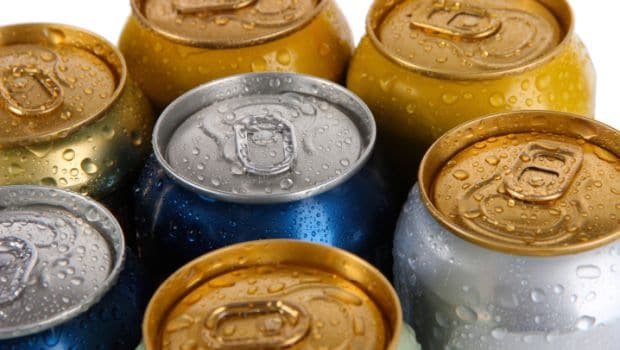
7. Salad dressing
Similar to ketchup and pasta sauces, the salad dressings you see on the shelf are all pumped with emulsifiers, trans fats, sugar and many chemical ingredients. It is easy to make a salad dressing from scratch at home. Some extra virgin olive oil and a few other ingredients like mustard sauce or honey are all you need.(Also read: Make Salad Dressings at Home)
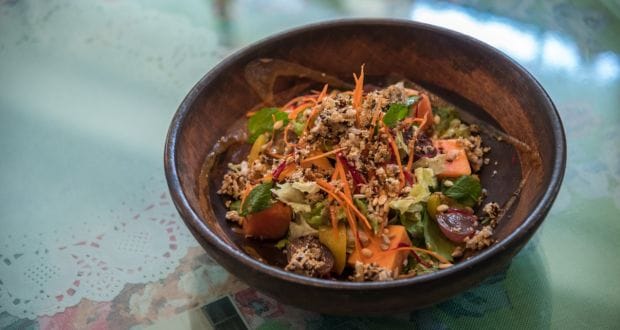
8. Refined flour, white rice and other grains
While shopping, be careful that you choose the least processed version of whichever grain you prefer. If you like chappatis, pick whole wheat or multi grain flour (or get your own flour ground at the local mill). Red rice or brown rice is healthier than white rice. Even if you’re trying new flours like buckwheat or quinoa, try to get the ones which are least processed (and thus grainier in texture rather than super-fine).
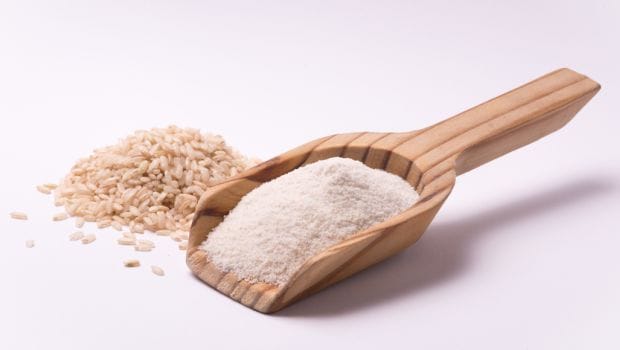
Whenever you’re in a quandary about whether a particular item is healthy or not, do not pay attention to its branding up front and immediately turn toward the ingredients section. If it contains the words refined, trans fat, emulsifiers, additives, sodium or sugar, you know what to avoid. Also, you may find many ingredients labelled by alphabets and numbers. These are all chemicals, usually preservatives or additives to make the item last longer, look fresh and attractive. Choose wisely, your health is in your own hands. About the Author:Harnoor Channi-Tiwary is a marketing specialist who wandered into the world of writing and never left. For more than a dozen years, she has been writing about food and travel. Harnoor steered the editorial direction for NDTV Food till January 2017 as Head (Content) prior to which she worked with Marryam H Reshii on the Times Food Guide 2014 and authored an e-book amongst other notable works. She blogs at TheThoughtExpress, tweets as @HCdines and now lives in Singapore with her husband and six year old daughter (who's first word reportedly was 'yummy' and not mummy).Disclaimer:The opinions expressed within this article are the personal opinions of the author. NDTV is not responsible for the accuracy, completeness, suitability, or validity of any information on this article. All information is provided on an as-is basis. The information, facts or opinions appearing in the article do not reflect the views of NDTV and NDTV does not assume any responsibility or liability for the same.










